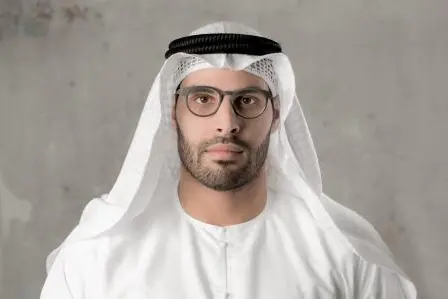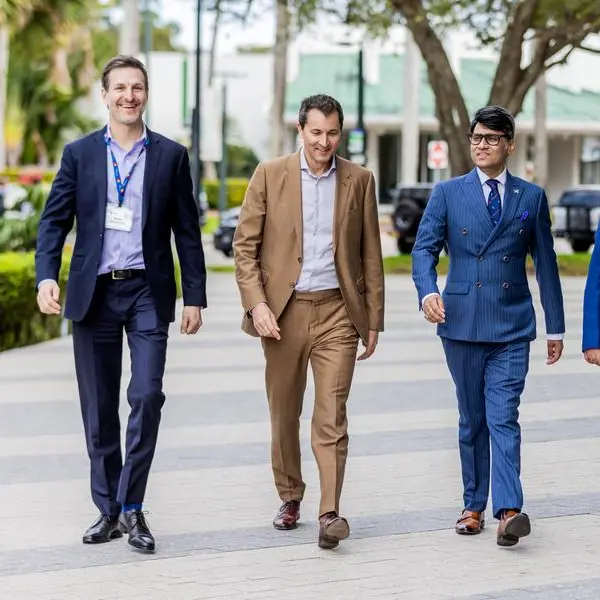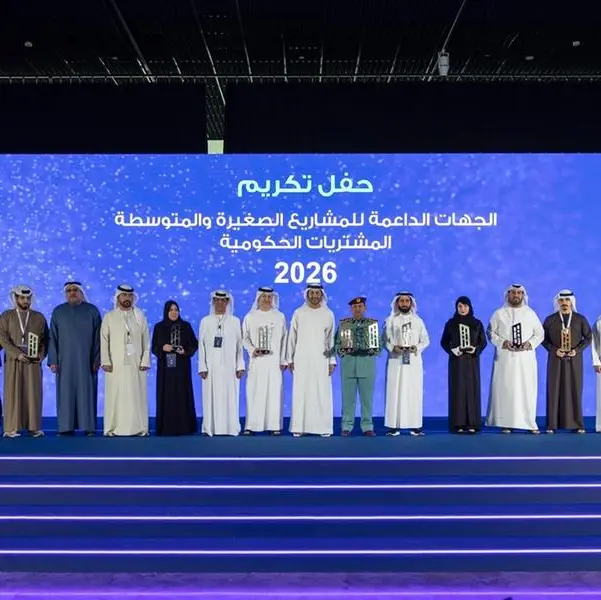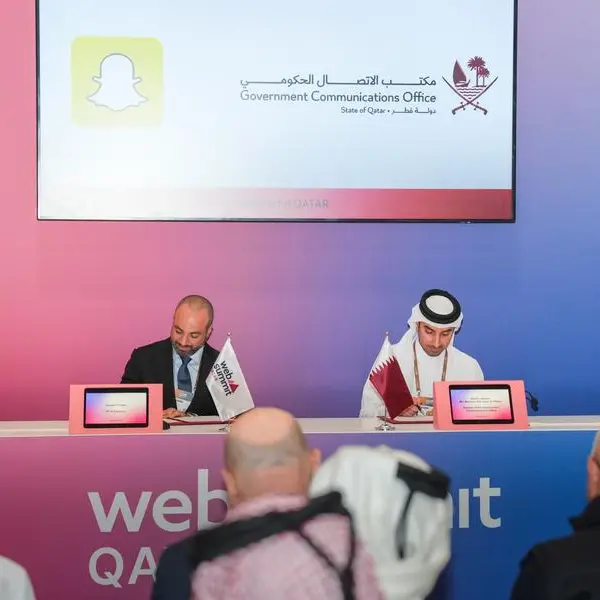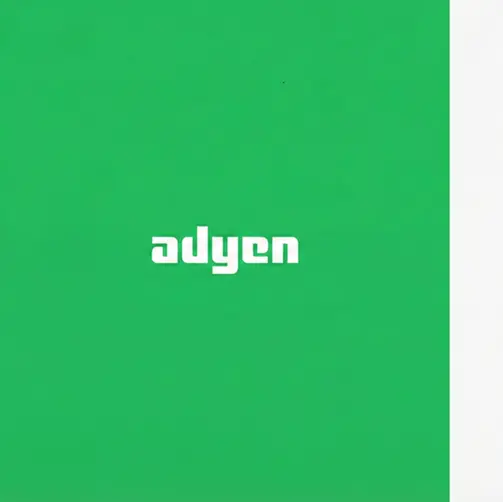PHOTO
Abu Dhabi, UAE: The Department of Culture and Tourism – Abu Dhabi (DCT Abu Dhabi) continued its CulturAll Conversations virtual panel series last week with an in-depth discussion about the development of filmmaking in the UAE and its future in the post-pandemic world.
CulturAll Conversations: Picturing the Future featured a conversation covering a wide range of topics between HE Mohamed Khalifa Al Mubarak, Chairman of DCT Abu Dhabi, and Jason Blum, the Emmy Award-winning and Academy Award-nominated Hollywood producer.
The talk, which was livestreamed on the Abu Dhabi Culture YouTube Channel, covered issues such as Blum’s illustrious career, the popularity of the horror genre, and how the Covid-19 pandemic could alter the movie industry and cinema-goers’ attitudes and behaviours.
Blum has produced some of the most profitable and critically acclaimed films of recent times. After working as co-head of the Acquisitions and Co-Productions Department at Miramax Films in New York, he went on to launch Blumhouse Productions, his own multi-media production company, releasing numerous innovative, thought-provoking and, in many cases, truly terrifying movies.
These include his first major hit Paranormal Activity, as well as The Purge, Insidious, and Sinister franchises, and recent successes such as Get Out and The Invisible Man. He has since branched out into drama films with Whiplash and BlacKkKlansman, both of which earned Blum Academy Award nominations, and TV series, such as The Jinx, with which he won the Emmy Award for Outstanding Documentary.
Storytelling was a major part of Emirati culture, said Al Mubarak, which has developed into modern forms of media. “We have been telling stories for thousands of years, and we have started evolving our storytelling into filmmaking, and turning our stories into films, television, comics, anime, Manga – looking at all kinds of content forms to tell our stories.”
They discussed the growth of micro-budget movies, which Al Mubarak said used to be about “weak storytelling, terrible [visual] effects” and were not taken seriously. Blum has altered the economic model, by making low-budget films with exceptionally high standards. “When you spend too much money on movies, my personal feeling is that the movie can get wrecked,” said Blum. “The director focusses too much on special effects and stunts and they forget about the storytelling, and the movies get bloated.” Cinema-goers are fundamentally interested in storytelling and performance, and “everything else is dressing on this.” With this ethos, he realised that horror was the ideal medium to make independent, low-budget movies that attracted vast audiences. “You don’t need a lot of money to make a very compelling movie, you need a great script and great actors, but you don’t need a car chase,” added Blum.
The conversation then moved on to the growth of international films, with movies from Korea, Germany and elsewhere challenging Hollywood’s pre-eminence in the movie industry. “Each country and their filmmakers, even though they might take things from Hollywood, they also add their own imprint or DNA into their films,” said Al Mubarak. He cited the UAE-made thriller Zanzana by director Majid Al Ansari, which “had a beautiful balance between Arabian culture and things he had learnt from Hollywood.”
Al Mubarak talked about the horror genre and its appeal to Emirati culture, as there were many stories in local folklore about supernatural beings, and expressed hope that some of these tales could be turned into movies in the future. “The key to a great horror movie is not the horror,” said Blum. “The audience is not looking to be grossed out, they are looking to be scared. The way to scare somebody is to think about what comes in between the scares.”
Referring to the ongoing Covid-19 situation, Al Mubarak asked Blum whether people would return to cinemas in droves once it was over or continue to stream films from home. Blum believed Covid-19 would fundamentally change the industry in two ways: firstly, the unnerving experience of being forced to stay home and wear masks would affect writers’ storytelling content; and secondly people would return to movie theatres, but the model would change, with more choice of films but with them being given shorter runs.
Blum concluded by urging young filmmakers to “stay inspired – Covid will end and the world will go back to how it was”. When thinking of a story to tell they should “find a story close to your heart and you know a lot about” and “most importantly try to make it scary, as if you make it scary a lot of people will see it and you’ll get to make more.”
CulturAll Conversations is a series of virtual discussions that examine the foremost issues in the UAE’s flourishing cultural scene. Previous sessions have included Writing Our Future, featuring talented Emirati student writers; The Art Community: The Way Forward, with a panel number of inspiring figures who helped shape the UAE’s art scene; and Reimagining Museums with group of Abu Dhabi international museums and friends.
About the Department of Culture and Tourism - Abu Dhabi
The Department of Culture and Tourism conserves and promotes the heritage and culture of Abu Dhabi emirate and leverages them in the development of a world-class, sustainable destination of distinction, which enriches the lives of visitors and residents alike. The organisation manages the emirate’s tourism sector and markets the destination internationally through a wide range of activities aimed at attracting visitors and investment. Its policies, plans and programmes relate to the preservation of heritage and culture, including protecting archaeological and historical sites and to developing museums, including Zayed National Museum, Guggenheim Abu Dhabi, and the Louvre Abu Dhabi. DCT - Abu Dhabi supports intellectual and artistic activities and cultural events to nurture a rich cultural environment and honour the emirate’s heritage. A key role is to create synergy in the destination’s development through close co-ordination with its wide-ranging stakeholder base.
© Press Release 2020
Disclaimer: The contents of this press release was provided from an external third party provider. This website is not responsible for, and does not control, such external content. This content is provided on an “as is” and “as available” basis and has not been edited in any way. Neither this website nor our affiliates guarantee the accuracy of or endorse the views or opinions expressed in this press release.
The press release is provided for informational purposes only. The content does not provide tax, legal or investment advice or opinion regarding the suitability, value or profitability of any particular security, portfolio or investment strategy. Neither this website nor our affiliates shall be liable for any errors or inaccuracies in the content, or for any actions taken by you in reliance thereon. You expressly agree that your use of the information within this article is at your sole risk.
To the fullest extent permitted by applicable law, this website, its parent company, its subsidiaries, its affiliates and the respective shareholders, directors, officers, employees, agents, advertisers, content providers and licensors will not be liable (jointly or severally) to you for any direct, indirect, consequential, special, incidental, punitive or exemplary damages, including without limitation, lost profits, lost savings and lost revenues, whether in negligence, tort, contract or any other theory of liability, even if the parties have been advised of the possibility or could have foreseen any such damages.
